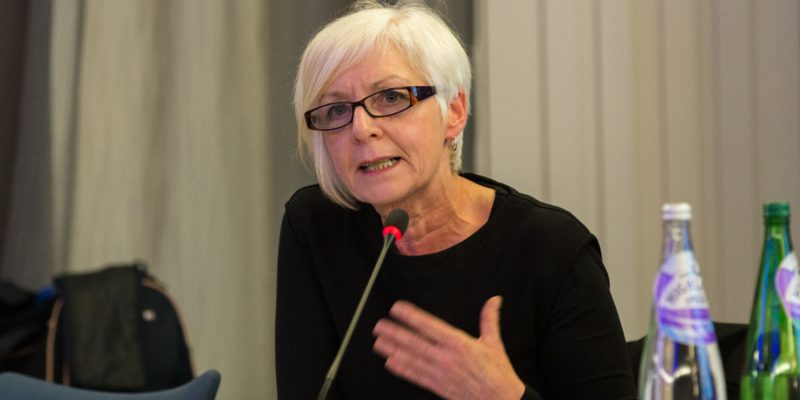
I therefore want to be clear with the Committee that, as a matter of fundamental principle, all lives matter. No-one is somehow of lesser value. Every policy must “see the individual” and must focus on respecting, protecting and fulfilling the rights of everyone, without discrimination. Shirley-Anne Sommerville MSP, the Cabinet Secretary for Social Security and Older People.
deafscotland is Scotland’s national specialist organisation promoting equality, access and citizenship for those affected by deafness and we welcomed this statement from the Minister and appreciated the opportunity to inform the Inquiry of the Equality and Human Rights Committee into the ‘Impact of the Covid-19 pandemic on equalities and human rights’. Our submission reports on deaf people’s experiences across Scotland: the majority feel they don’t have a ‘voice’ because of the communication barriers in place which negatively impact on all aspects of their lives. As their voices and opinions are not heard they are excluded and their needs are unmet. This is a human rights issue: communication is a human right and a gateway to the equal enjoyment of all other rights. The remedy is to establish Scotland as an Inclusive Communication Nation – a world first!
Covid-19 has had a huge impact on our society, unlike anything most of us have ever experienced.
Physical distancing creates barriers beyond the 1 metre range of hearing aids. The use of masks muffles the voice and covers the mouth, stopping lip-reading. For those affected by deafness, these measures heighten and worsen existing anxiety, isolation and feelings of exclusion. Add in self-isolation and people with a hearing loss are at a huge communication disadvantage. We know that people affected by deafness are more likely to have poor mental health due to the barriers they face daily: the use of white goods in the kitchen, family/friends who haven’t learned to communicate properly, and watching TV without captions. Then there are work meetings, communication with colleagues and the use of technology.
At deafscotland we are calling it the communication virus because it parallels our day to day work. We also see a missed opportunity. If everyone had been taught British Sign Language at school, then these barriers would be much less.
Before the lockdown, every day over one million Scots were isolated from life and living because of their deafness. It would be fair to say that this lockdown is giving everyone an insight into the isolation deaf people face and we hope people will remember and support a change to the way we communicate in Scotland. Communication is everyone’s business!
We have seen a doubling of enquiries, mostly from anxious relatives of an older deaf adult who cannot use the phone. They are looking for equipment to help them keep in touch and help deal with the social distancing and shielding guidance. Unfortunately, it is quite difficult to get the correct equipment at short notice, never mind being able to learn to use it effectively. It is worth remembering that hearing aids are assistive, not corrective. There are many environments that are too busy or noisy for them to have much effect.
On the plus side, many older deaf adults are using smart technology to contact family and friends. They are generally not very IT literate but have managed to contact others through these devices. Online services and mobile technology allow deaf people to communicate in ways a landline telephone didn’t. I live in Renfrewshire and the charity Roar: Connections for Life is making huge inroads in the digital world with its clubs and their members.
With an ageing population, it is important to remember that age related hearing loss is common. We should plan and manage it better and look at our public spaces. A lot could be done quickly, cheaply and effectively to improve communication for us all.
Many people believe hearing loss is a sign of getting older, to be expected and tolerated. It is and it isn’t! We can take more action to prevent loss by reducing the risks from infection, vibration and excessive exposure to noise. There are many reasons for hearing loss. There is no single ‘cure’ but there are a range of solutions for society. Society disables people by failing to meet their communication needs.
In these extraordinary circumstances and times, we want Scotland to recover better and be an Inclusive Communication Nation because:
- it’s the correct approach for a human rights respecting country
- makes economic sense as the talents of people have been overlooked for too long
- can help our economic renewal if given the opportunity to do so.
Janis McDonald is Chief Officer at deafscotland
To read the full deafscotland submission click here
